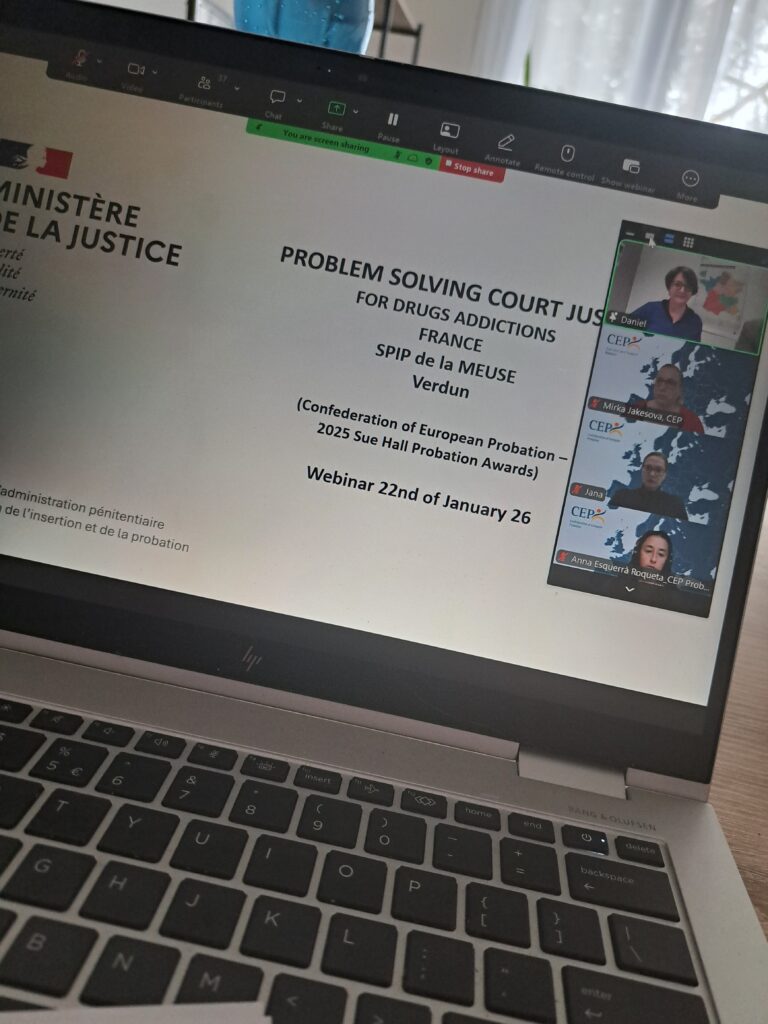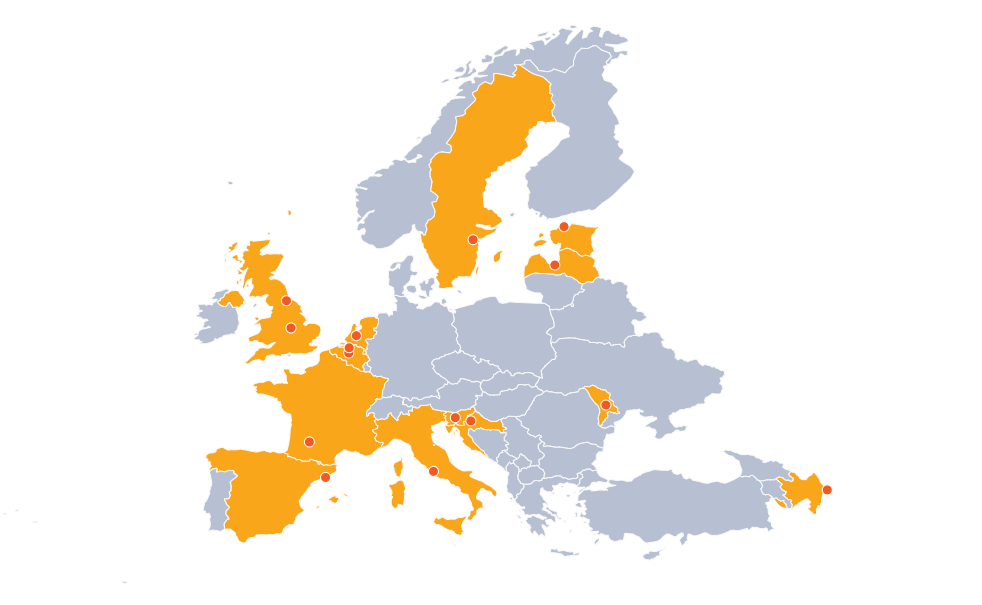Previous Article
News
Successful first trial with alcohol monitor in the Netherlands
The first trial with an alcohol monitor ankle bracelet in The Netherlands is very successful. The trial of the alcohol monitor is initiated by the Dutch Ministry of Justice and Security and the three probation services Reclassering Nederland, SVG and Leger des Heils Reclassering. 97,5 percent of the 26 participants didn’t drink during the period of the trial that started in January 2017. The effect that the alcohol monitor had on the participants continued in the months after the bracelet was removed from their ankle. Both clients and probation officers were very positive about the effect of the alcohol monitor.
Participants claimed that they were more aware of their alcohol consumption and that the bracelet pushed them to quit their alcohol addiction. Some were afraid not be able to stay away from alcohol after the trial period and wanted to wear the ankle bracelet longer than 75 days. This would, for example, give them an excuse not to drink during Christmas. Four participants tried to manipulate the technology of the ankle bracelet. They received a warning and were called in by their probation officer. One of the participants committed a criminal offence during the time of the trial. Three months after the removal of the ankle bracelet, none of the other participants have been in contact with the police.
Probation officers explained that they have better control on the alcohol consumption of their clients and that the alcoholmeter makes it easier to address problems if they occur. According to them, this helps the client in their probation process.
A second trial with 80 participants took place in 2018. This trial will be evaluated later this year.
Aim of the trial
The aim of the trial is to determine whether the alcohol monitor is an appropriate sanction and if it is effective in combination with professional counselling. The research team needs to assess if the monitor has an effect on the offenders’ alcohol consumption and behaviour. The monitor is being tested on participants that are not allowed to drink alcohol during their early release period. Participation is voluntary.
The probation service is using the alcohol monitor in addition to the current breath-, blood- or urinetests. Offenders wearing Alcoholmeters will be supervised by probation officers for compliance with their alcohol ban. Once a day, the probation officers receive readings via a modem that is installed in the clients home. The advantage of the alcohol monitor is that offenders will no longer have to go to the probation service for testing three times a week. Continuous monitoring can also help offenders overcome their alcohol problem. If the trial is successful, the government will consider introducing legislation on its use.
Alcohol abuse often plays a significant role in violent crime. The government is taking targeted measures to reduce the number of violent criminal offences. Attaching special conditions, such as an alcohol ban in case of suspended sentence. This can help to prevent alcohol-related violence and other offences.
The alcohol monitor has already proven successful in the United States and the United Kingdom already. 78% of participants in the US and 92% in the UK completed the programme without consuming alcohol.

Related News
Keep up to date with the latest developments, stories, and updates on probation from across Europe and beyond. Find relevant news and insights shaping the field today.
New

Uncategorized
CEP at the EMPRO Symposium hosted by ERA
04/02/2026
CEP actively contributed to the EMPRO Knowledge Exchange Symposium hosted by the Academy of European Law (ERA) in Trier on 28–29 January, bringing together practitioners, policymakers, and researchers to reflect on the implementation of EU Framework Decisions in probation and supervision.
New

Alternatives to pre-trial detention, Community Sanctions and Measures, Framework Decisions, Technology
Future of Criminal Justice: CEP’s Contribution to Key 2025 Dialogues
27/01/2026
Throughout 2025, CEP and its representatives actively participated in the online Technical meetings ahead of the HLF as well as the High Level Forum on Future of Criminal Justice taking place on 4-5 March 2025, 20-21 May 2025 and 1-2 October 2025 in Brussels, Belgium.
Recap

Alternatives to pre-trial detention
Recap: Webinar on Alternatives to Detention 2026
26/01/2026
On Thursday 22 January, CEP hosted the first webinar of 2025 on the topic of Alternatives to Detention. The session led by Ms. Marina Pajoni from the French Prison and Probation Service titled „Problem Solving Justice in Pracitce: The Meuse Probation Service´s Approach to Drug Addiction“ introduced an innovative programme developed by the Meuse Probation Service in close cooperation with the French Ministry of Justice.
New

Education and Training
CEP launches an interactive European map of probation education and training institution contacts
22/01/2026
The CEP is pleased to inform its members that a new dedicated section has been developed on the CEP website featuring an interactive map of Europe.
New

CEP Events
CEP activity calendar 2026
20/01/2026
As we begin the new year, we would like to thank all CEP members, partners, and participants for your continued engagement and valuable contributions. Your involvement plays an essential role in shaping CEP’s work and activities.
We are pleased to share the CEP calendar for 2026, which provides an overview of the events planned for the year ahead. We look forward to continuing our collaboration and welcoming you to upcoming CEP activities throughout the year.
Thank you for being part of the CEP community.
New

CEP members, Gender-based violence
Interventions Alliance’s Eden House Recognized as Outstanding
15/01/2026
CEP is delighted to share that Eden House, an Interventions Alliance residential service for women with high-risk or complex needs on probation, has been rated “Outstanding” overall by HM Inspectorate of Probation. In 2022, Eden House was honored with the CEP Public Protection Award. Our sincere congratulations to the team for this remarkable achievement.
Subscribe to our bi-monthly email newsletter!
"*" indicates required fields
- Keep up to date with important probation developments and insights.

